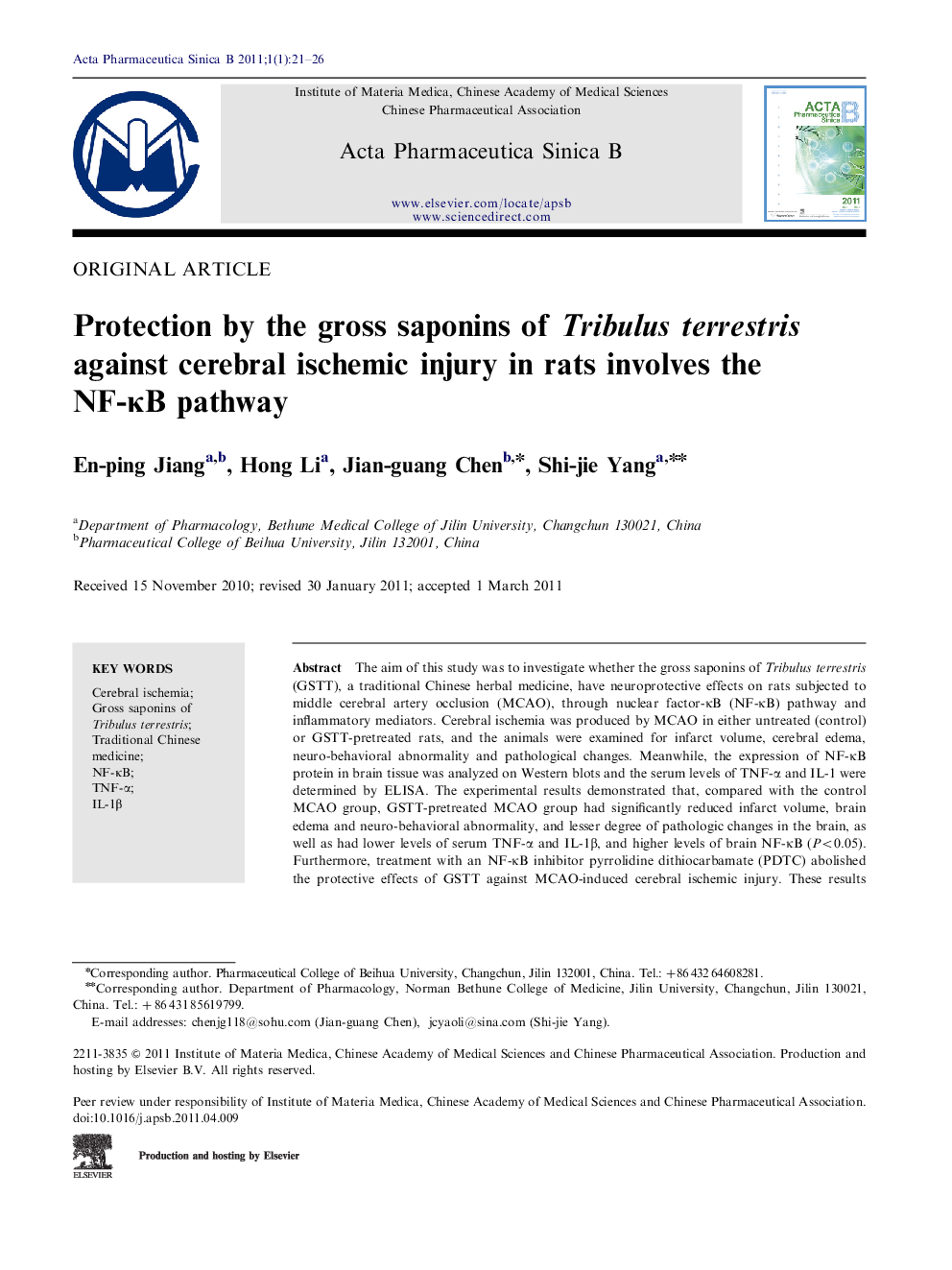| کد مقاله | کد نشریه | سال انتشار | مقاله انگلیسی | نسخه تمام متن |
|---|---|---|---|---|
| 2474868 | 1113169 | 2011 | 6 صفحه PDF | دانلود رایگان |

The aim of this study was to investigate whether the gross saponins of Tribulus terrestris (GSTT), a traditional Chinese herbal medicine, have neuroprotective effects on rats subjected to middle cerebral artery occlusion (MCAO), through nuclear factor-κB (NF-κB) pathway and inflammatory mediators. Cerebral ischemia was produced by MCAO in either untreated (control) or GSTT-pretreated rats, and the animals were examined for infarct volume, cerebral edema, neuro-behavioral abnormality and pathological changes. Meanwhile, the expression of NF-κB protein in brain tissue was analyzed on Western blots and the serum levels of TNF-α and IL-1 were determined by ELISA. The experimental results demonstrated that, compared with the control MCAO group, GSTT-pretreated MCAO group had significantly reduced infarct volume, brain edema and neuro-behavioral abnormality, and lesser degree of pathologic changes in the brain, as well as had lower levels of serum TNF-α and IL-1β, and higher levels of brain NF-κB (P<0.05). Furthermore, treatment with an NF-κB inhibitor pyrrolidine dithiocarbamate (PDTC) abolished the protective effects of GSTT against MCAO-induced cerebral ischemic injury. These results indicated that GSTT's ability to protect against cerebral ischemic injury was mediated through the NF-κB signaling pathway, and that GSTT may act through inhibition of the production of inflammatory mediators.
Journal: Acta Pharmaceutica Sinica B - Volume 1, Issue 1, June 2011, Pages 21–26